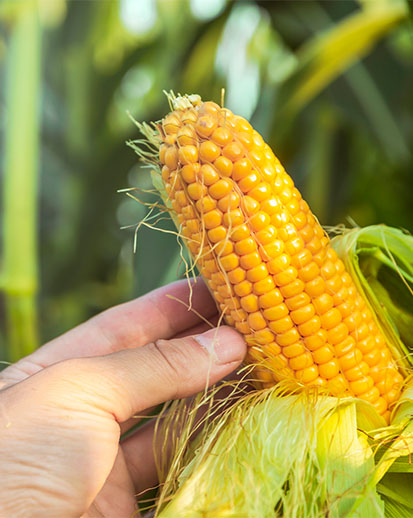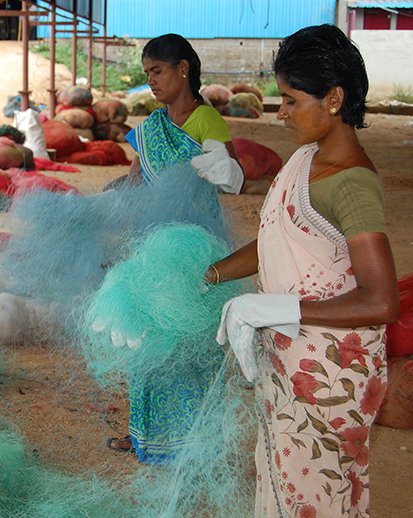Animal Nutrition & Health
About Animal Nutrition & Health
Animal Nutrition & Health serves the global feed industry with innovative and sustainable nutritional solutions. A pioneer since the earliest days of feed additives, we draw on the latest science to provide a portfolio that runs from vitamins through carotenoids to cutting-edge mycotoxin risk management solutions, feed safety diagnostic solutions, gut heath technologies, and feed efficiency. We are now developing a new strand to our business that uses independent data analysis and diagnostics to pinpoint on the one hand health issues and on the other environmental footprint, on a completely bespoke basis.
We aim to make animal farming more sustainable by reducing greenhouse gas (GHG) emissions caused by animal farming and the consequent pressure on the environment and biodiversity. At the same time, we strive to ensure that farmers can earn a decent living and that people will have access to affordable proteins. Further information on our Animal Nutrition & Health strategy and how we make animal farming more sustainable can be found in Strategy.
Animal Nutrition & Health performance
Animal Nutrition delivered exceptionally strong volume growth of 10%, with ongoing good demand in the underlying animal protein markets. This volume growth was supported by customers increasing stock levels given widespread and ongoing supply chain concerns. This stocking effect from customers was exacerbated in the fourth quarter by a sharp increase in energy costs, heightening inflationary pressures.
All species performed well, especially ruminants and poultry, with swine in China fully recovering from the effects of African Swine Fever and aquaculture showing improvement due to the gradual reopening of food services. Regionally, China and Latin America were very strong.
Erber Group, a leader in mycotoxin management and eubiotics, delivered strong results in its full first year in DSM, with €328 million sales and total Adjusted EBITDA of €86 million in 2021. The Erber Group activities are now fully integrated in Animal Nutrition & Health.
Strong demand for poultry in second year of pandemic
The poultry industry faced multiple challenges in 2021. These included the continuing impact of COVID-19, which caused labor shortages and logistical constraints and consequently drove up corn and soybean prices, and the occurrence of HPAI (avian or bird influenza) throughout Europe and Asia. However, the year saw a gradual increase in demand as lockdowns were lifted, economies began to recover, and activity picked up within the food service and hotel industries. The recovery had a positive effect not only on poultry but on all the species we support. We continued to help our customers become more sustainable during this challenging time.
Championing sustainability in egg production
Egg consumption played an important role in keeping the levels of immunity high among the population at large during the second year of the pandemic. Pressure on the supply chain was significant, but we increased sales of key solutions such as Hy•D®, vitamins and feed enzymes. At the same time, our partnership with the International Egg Commission allowed us to communicate our sustainability message to most of the major players in the egg industry, positioning DSM as the sustainability leader in this sector.
Response to African Swine Fever (ASF) drives growth
African Swine Fever (ASF) is one of the severest crises experienced by the swine/pork value chain in recent times. Our portfolio of global products and local solutions enabled us to provide tailored support to our customers during the recovery phase of 2021.
Managing ASF has required the entire swine industry to improve biosecurity, accelerate the adoption of technology, and raise professional standards. Despite the smaller size of the overall herd (versus 2020), we benefited from the increased demand for our solutions that these improvements generated.
Further development of sustainable aquaculture solutions
It is widely accepted that aquaculture has an important role to play in providing the world’s growing population with protein, with demand for salmon and warm water fish being of pivotal importance. Any further growth of the aquaculture sector must, however, be sustainable and must occur within the planetary boundaries.
During 2021, we further developed our aquaculture solutions in the area of enzymes for warm water species, expanded (via the acquisition of Biomin) our health solutions for cold water and warm water species, and reframed the vitamin requirements for aquaculture species in our Optimum Vitamin Nutrition™ guidelines. Raising our profile as partners in the development of sustainable aquaculture, the aquaculture component of our ‘We Make it Possible’ initiative was also launched.
Strong growth in beef, positive trend in dairy
Our activities in the beef sector continued to benefit from strong exports from Latin America during the year, especially to China. Volume growth was accompanied by improvements in product quality, as farmers made increased use of our beta-carotene to improve fertility rates in cows. There was also increased demand for two other of our products to improve ruminant performance: CRINA® Ruminants (a precise blend of essential oils and nature-identical compounds) and RONOZYME® Rumistar® (a first-of-its-kind feed enzyme that optimizes corn starch and fiber degradation in the rumen). In the dairy sector, by contrast, consumption of dairy products fell during the year, while grain costs for farmers rose. Our dairy business nevertheless increased, fueled by sales of Hy•D®, our pure and proprietary vitamin D3 metabolite that improves calcium management and lifetime productivity in dairy cows.
First approvals for Bovaer® methane inhibitor solution
We received full regulatory approval from the Brazilian and Chilean authorities in 2021 to commercialize Bovaer® for application in beef, dairy, sheep and goats. We completed the first step in the regulatory approval process in Europe by receiving a positive EFSA opinion on the safety of Bovaer® for dairy cattle. We worked with partners from the dairy value chain to prepare for the introduction of Bovaer® in further markets worldwide. These activities included trials to confirm Bovaer®’s effectiveness in local farming systems and further build up practical farm experience.
In January 2021, we published the results of a trial that had been conducted at the Dairy Campus in Leeuwarden (Netherlands) in cooperation with a consortium representing the Dutch dairy value chain. The results showed a reduction in enteric methane emissions of 27–40% per cow, allowing Bovaer® to gain accreditation.
In Australia and New Zealand, we worked closely with industry and research institutes to develop a pasture-based application model for Bovaer® (i.e. for cows not raised in feedlots). Work conducted at AgResearch and CSIRO successfully investigated several forms and feeding models for Bovaer® in different pasture-feeding systems common in New Zealand and Australia. Trials took place throughout 2021. We also signed a collaboration agreement with Fonterra to accelerate the transition to lower-methane agriculture.
At COP26 in Glasgow, we announced our plans to realize large-scale production capacity for Bovaer® with a new plant at our site in Dalry (UK), supported by Scottish Enterprise. The new plant is scheduled to come on stream in 2025. As emphasized by the First Minister of Scotland at the announcement, Scotland offers a welcoming and supportive environment for innovation and production, and is leading the way for a net-zero future.
Commencement of vitamin E production by Yimante
Following an extensive upgrade to ensure compliance with our safety, health and environmental standards, production commenced at our vitamin E plant in China, Yimante (owned 75/25 with Nenter). Operations started successfully in 2021. With a gradual ramp-up, we reached our targeted utilization rate by the end of the year.
Integration of Biomin
Following our acquisition of activities from the Erber Group in 2020, we integrated Biomin into DSM during 2021.
The result of the Biomin integration is a single, expanded Animal Nutrition & Health business with the capacity and capabilities to lead globally in facilitating sustainable animal protein production. This reconfigured business has an unparalleled network of more than 55 premix and additives plants and a unique portfolio of highest-quality core vitamins, premixes, carotenoids, feed enzymes, microbes and eubiotics to address the new challenges facing the animal farming community. With scientific centers of excellence in Switzerland and Austria, and worldwide R&D capabilities and technical expertise, this business combines global thought leadership with the advantages of local knowledge and connections.
Strong increase in sales of Veramaris® algal-based omega-3
Utilization of our Veramaris facility in Blair (Nebraska, USA) further ramped up during the year. Continuous yield and potency improvements further enhanced the value of our Veramaris® algal oil, which is rich in both EPA and DHA omega-3 fatty acids. The uplift within the food service and hotel industries sector in 2021 helped generate a quarter-by-quarter increase in sales of Veramaris®, which was reflected in a 150% rise in volume versus 2020 as we expanded into additional geographies and channels, building our presence in petfood, warm water fish, shrimp and salmonids.
Enabling the replacement of antibiotic growth promoters (AGPs) in China
In view of the scale of the challenge of transitioning to AGP-free production, the Chinese Ministry adopted a two-phase approach. During phase 1 (July — December 2020), the sale of feeds containing AGPs was still permitted. However, during phase 2 (January — June 2021), the sale of feeds containing AGPs was prohibited, stimulating demand for alternative nutritional solutions to manage animal gut health. Our solutions include Balancius®, which supports digestion and gastrointestinal functionality and improves performance, and VevoVitall®, which combats the negative activity of micro-organisms on feed.
Launch of Sustell™ and Verax™
In May 2021, we launched Sustell™ – an intelligent sustainability service that combines the most advanced environmental foot printing calculation tool with expert sustainability, animal production and nutritional knowledge to create tailor-made, practical solutions and business development projects that enhance the environmental sustainability and profitability of animal farming. The launch of Sustell™ underlines our commitment to our strategic initiative ‘We Make It Possible’, which has the objective to drive a robust and achievable global transformation toward sustainable animal protein production.
In the US, we also introduced Verax™ – a data-driven, blood-based, biomarker-screening service that uses analytics to deliver a deeper and more accurate understanding of the health and performance of animals. This innovative service gives producers and feed integrators quick access to substantiated guidance to improve the nutrition, performance, and sustainability of their operations.
Commitment to enable double-digit on-farm livestock emission reductions
Food systems and the climate crisis are intrinsically linked. Not only is food production and consumption responsible for more than a quarter of all global emissions (IPCC report 2019); it is also highly sensitive to the disruption of the planet’s natural ecosystems. Switching to more sustainable production of key animal proteins such as dairy, fish, meat and eggs is essential in order to meet the nutritional needs of the growing global population. As part of our strategic Food System Commitments, we commit to enable double-digit on-farm reduction of livestock emissions by 2030.





